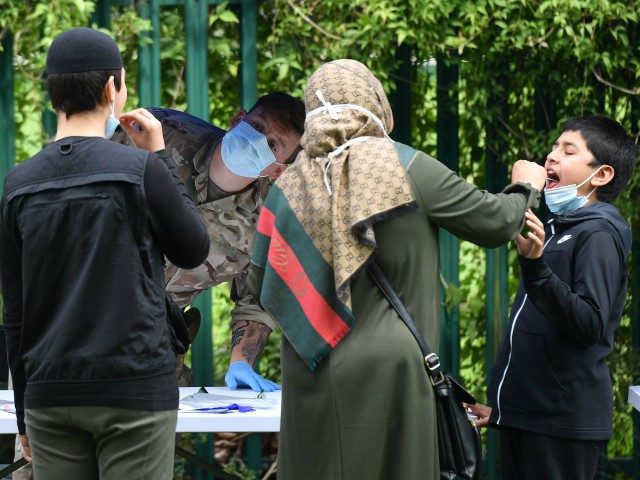Leicester has found itself in the extraordinary position of returning to lockdown after experiencing a surge of coronavirus cases while the rest of the country sees restrictions lifted, with a local councillor partially blaming the rise in infections on a “language barrier”.
The multicultural English city of Leicester, which has a population of 330,000, will see non-essential shop doors shut on Tuesday and schools close on Thursday after a spike in coronavirus cases, with the local council reporting 944 new cases in the last two weeks.
Diagnoses in Leicester account for 10 per cent of all new cases across the country. With 135 new cases per 100,000 people, Leicester has three times the number of infections than the city with the next highest number of cases, according to Sky News. Officials have described it as a “tinderbox” of new cases.
This the first local lockdown to be imposed since the coronavirus pandemic began and the whole nation went into shutdown measures. Health Secretary Matt Hancock has said the Leicester lockdown will be reviewed in two weeks.
The country had only started emerging from full lockdown two weeks ago. The rest of the country will see restaurants, hairdressers, pubs, and other businesses open on Saturday.
Mr Hancock said on Monday: “Having taken clinical advice on the actions necessary and discussed them with the local team in Leicester and Leicestershire, we have made some difficult but important decisions.
“We recommend to people in Leicester, stay at home as much as you can, and we recommend against all but essential travel to, from and within Leicester.
“We’ll monitor closely adhering to social distancing rules, and we’ll take further steps if that is what’s necessary.”
UK: Half of Imported Coronavirus Cases Come from Pakistan https://t.co/sDag1Aq9gT
— Breitbart London (@BreitbartLondon) June 28, 2020
Dr Bharat Pankhania, an expert on infectious diseases at the University of Exeter, told the Associated Press that he did not think that there was “anything peculiar about Leicester” that could explain the spike.
However, a local councillor in part blamed a “language barrier” for a misunderstanding of lockdown rules in the Midlands city, with south Asian and black residents making up 49 per cent of the population. In the east of the city, where the outbreak is the worst, around two-thirds of the residents are ethnic minorities. Asian communities are also more likely to live in multigenerational households, increasing the risk of infection to older relatives.
Councillor Ratilal Govind told MailOnline: “I have seen young people getting together, having a few drinks and conversation. They are just social gatherings. With these young people, there is a language barrier. They are speaking their own language, and I tell them to disperse in Gujarati. There is a lack of communication made worse by the language barriers.”
Speaking to Good Morning Britain on Tuesday, Mr Govind went on to blame the government for not providing information on coronavirus lockdown rules in foreign languages.
The councillor said: “Leicester is a diverse city, so… some sort of different language information should have gone out via the government.”
Ivan Browne, Leicester’s director of public health, said in a statement published by ITV: “Leicester has high levels of health conditions such as diabetes, pockets of deprivation, and a very significant Black, Asian and Minority Ethnic population — and we know that these factors combine to create a high-risk, more vulnerable, population that’s more susceptible to coronavirus.”
People from South Asian backgrounds are twice to four times more likely to develop Type 2 diabetes than white Europeans, according to the charity Diabetes UK.
The health secretary also said that there is an “unusually high” number of cases in children, despite current scientific consensus putting children in the less-vulnerable category.
Conservative MP Andrew Bridgen for North West Leicestershire told Radio 5 Live that Leicester was a “perfect storm” for a spike in cases, with a high youth population less likely to pay attention to lockdown rules, multigenerational ethnic minority homes where young people are mixing with older generations, and garment industries that have continued to remain open despite the government ordering them to close.
Patel: ‘Awful’ Mass Gatherings Will Lead to a Second Wave of Coronavirus in the United Kingdom https://t.co/0x7n6okomH
— Breitbart London (@BreitbartLondon) June 30, 2020

COMMENTS
Please let us know if you're having issues with commenting.